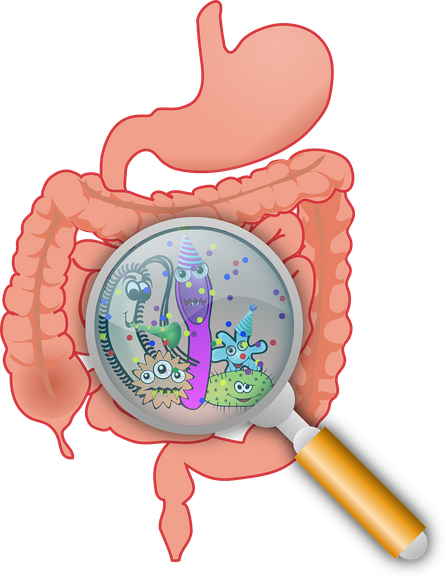Author: Sylvia Marinova, PhD student in in the "Genomic Stability" lab at BAS
Researchers from the University of Florida have discovered a new mechanism of signal transmission between the nerve cells in the brain and the intestinal microbiome. In their study, they also showed how this mechanism can be modulated from a compound, called fenchol, that is abundant in basil and some other plants and can reduce neurotoxicity in Alzheimer's disease [ref.1].
In this article we will first look at what causes Alzheimer's disease, what causes it and then we will look in detail at whether basil can help fight the disease.
What is Alzheimer's disease?
Alzheimer's disease is a neurodegenerative disease that is associated with memory loss (dementia). Usually it begins with a slight degree of forgetfulness, but over time it can progress to the inability to maintain conversation and cope with daily activities and needs. The disease is more characteristic of the elderly, although it is known that pathological changes in the brain begin long before the appearance of the first symptoms.
Science still cannot give a full explanation of the causes of the onset of the disease, but usually patients experience increased deposition of the so-called amyloid-beta plaques in the brain. [ref.2]. This process leads to pathological changes, which include neurotoxicity and the dying of nerve cells, as a result of which dementia appearsas well as a decrease in the ability to communicate.
Is there a link between Alzheimer's and our gut microbiome?

There is already data in the literature that show that patients suffering from Alzheimer's disease have a different composition of their intestinal microbiome. What does it mean?
The human microbiome is a complex ecosystem containing over 100 trillion micro-organisms, which is proving crucial to our existence. In addition, many nerve cells that form a direct connection to our brain, called the gut-brain axis, can also be found in our guts. This two-way communication with the central nervous system also takes place through our immune system, the vagus nerve and various metabolites, which are a product of the metabolism of microorganisms living in the intestine. An important group of such substances are short-chain fatty acids. Recent studies suggest that this may be directly related to the development of pathological conditions such as Alzheimer's disease [ref.3]. Indeed, the amount of short-chain fatty acids (SCFA) found in Alzheimer's patients is much less than in healthy patients with a well-balanced microflora.
How does our brain sense the presence of SCFAs?
This is a very logical question that science has an answer to. The nerve cells of our central nervous system have a sensor (receptor) on its surface that is called free fatty acid receptor . It is also found in many other tissues of the human body and its functions generally include regulation of energy metabolism and the immune system. In addition, researchers at the University of Florida, whose study is the subject of this article, show that the activity of these receptors may play a positive role in protecting brain cells from the accumulation of amyloid-beta plaques in Alzheimer's disease.
The role of basil

A mong144,000 compounds in search of natural products that can have a stimulating effect on free fatty acid receptors in the brain, the researchers came across a substance called fenchol.
Fenchol is found in abundance in basil leaves and gives them the specific aroma that we all know. It has the ability to bind specifically to fatty acid receptors in the brain and activate them. This in turn reduces the accumulation of amyloid-beta plaques and their neurotoxicity on cells, as scientists have shown in living cells and in model animals.
Continuing the study, they managed to get into greater depth of the exact cellular processes that are affected by fennel. They identify two processes that help reduce neurotoxicity.
One is related to the breakdown of unnecessary proteins in the cell by the so-called proteasome. It seems that fenchol manages to stimulate it and thus break down the amyloid-beta plaques, which are of a protein nature.
The other mechanism concerns the aging of nerve cells. Fenchol treatment reduces this process and this allows the cells to regenerate faster and not accumulate malfunctioning cells in the tissue, called zombie cells - cells that accumulate in diseased tissues and cause inflammation in them.
"Fenhall affects two interconnected mechanisms - aging and proteolysis", says Yadav, project leader, "It reduces the formation of semi-dead zombie nerve cells and also increases the breakdown of pathological amyloid-beta plaques so that they clear faster than the brain" [ref.4].
In the future, researchers will focus on the treatment and prevention options of Alzheimer's with fenchol. Their idea is to compare the effectiveness of taking fenchol directly as a drug or taking basil.








